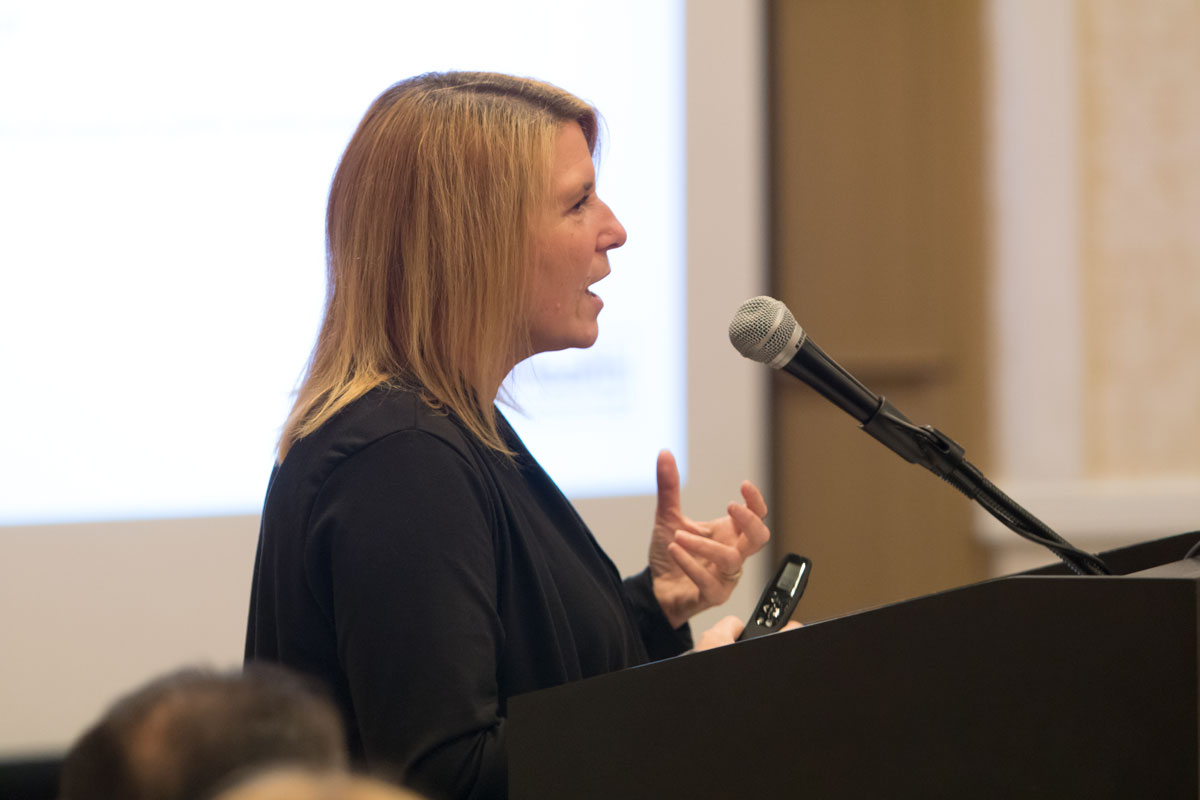"We are not as healthy a population as we should be," New Jersey Department of Health Commissioner Cathleen Bennett told an audience of NJ Chamber members this morning at an N.J. Chamber roundtable breakfast at the National Conference Center in East Windsor.
Bennett noted that chronic illness and sick days costs employers billions of dollars each year. Citing statistics from 2009, she said cardiovascular disease costs employers $475 billion and diabetes $275 billion in lost productivity, sick days and insurance. "Those numbers are a lot higher in 2016 dollars," she said.
Bennett also cited a Robert Wood Johnson Foundation study that predicts in 13 years (by 2030), obesity among New Jersey residents will double from 24 percent of the population to 48 percent, bringing with it all of the challenges linked to obesity and putting a bigger strain on New Jersey's health care system.
The answer, Bennet said, is an integrated approach to health care, in which the Department of Health is playing a central role.
"The health care system used to center around hospitals and the care of the sick," she said. Programs from the Department of Health are taking a more integrated approach that goes beyond administering medicines and managing chronic care, and includes promoting wellness screenings as well as healthy nutritional and lifestyle habits.
Bennett cited the Worksite Wellness Toolkit to help employees lead healthier lifestyles and help employers create a "culture of wellness."
"Chronic diseases are the most common causes of sickness and death and much of it is preventable," Bennett said.
Bennett also noted one of the most common problems in health care each year is flu season. More than 10,000 people were admitted to New Jersey hospitals last year because of the flu.
"Again, very preventable," Bennett said, urging employers to make sure their employees get this season's flu shot.
Bennett also discussed New Jersey's situation regarding the Zika virus. There have been 159 confirmed cases reported in New Jersey, predominantly in the state's northern counties. She said New Jersey has taken effective steps to control the virus by controlling the mosquito population.
"Take all the necessary precautions if you are travelling to a Zika-infected country," she cautioned. "Consult your health care professional before leaving."
More information about the Zika virus and New Jersey's actions against it can be found here.
A special thank you to Horizon Blue Cross Blue Shield of New Jersey for sponsoring the breakfast event.
For photos from the event, click on an image below:
{eventgallery event='72157675718216786' attr=images mode=link max_images=20 thumb_width=50 offset=0 }
